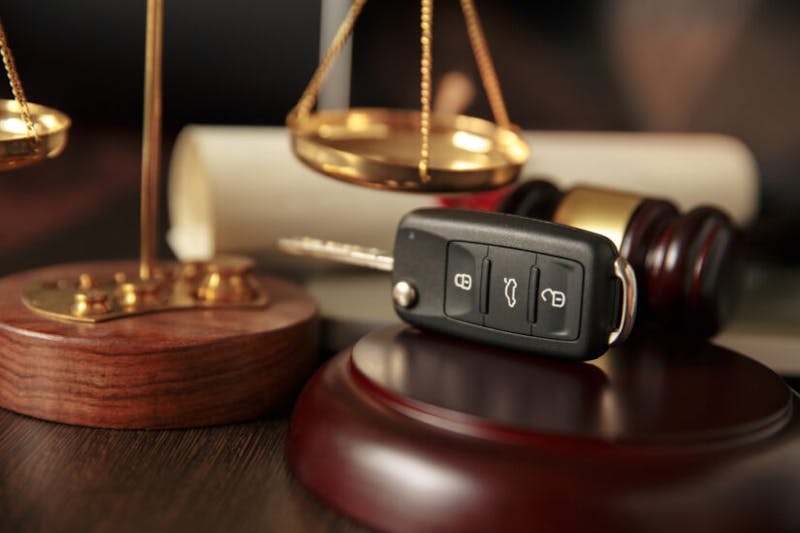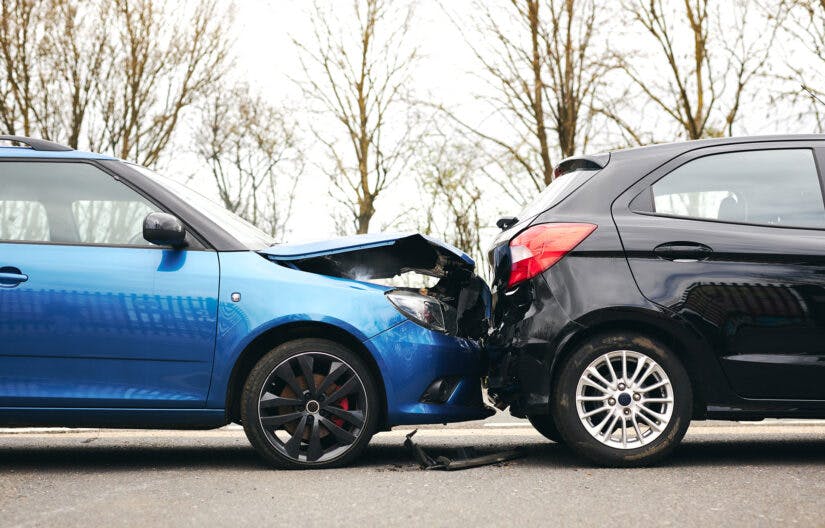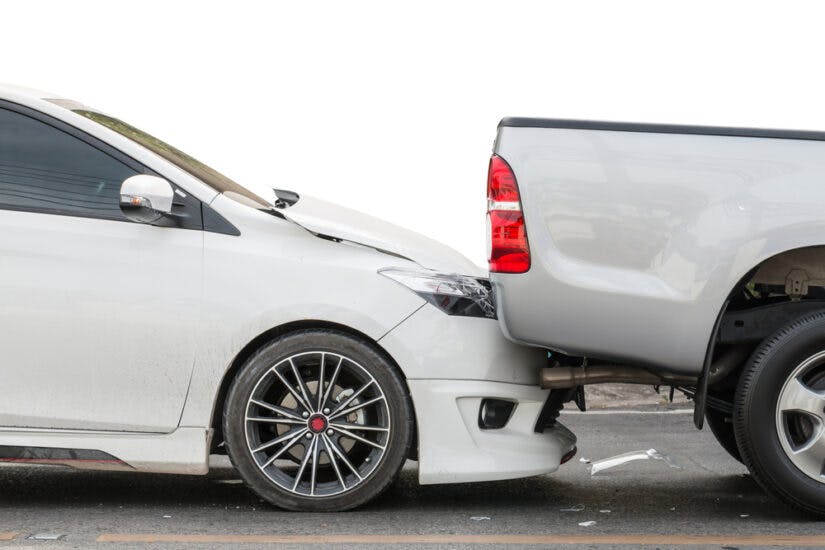
You may be wondering how long you have to sue the liable party after a slip and fall, wrongful death, car accident, or any personal injury claim you may be entitled to compensation for. It can be daunting to track down all the information you need to make a case against a liable party for negligence.
But you must get started on your case as soon as possible if you hope to have your case heard by insurance companies and the civil courts. In this article, we will discuss the statute of limitations on car accidents in Georgia so you are better prepared if you find yourself in the middle of something unfortunate.
Help After a Car Accident in Georgia
After you are injured in a crash, a basic understanding of the laws may be a critical factor. However, you might need more than just information. It might be beneficial to discuss your situation with an experienced Georgia personal injury lawyer.
Getting in contact with someone that can help is easier than you think. You can connect with a Georgia personal injury lawyer in a few clicks. But first, you need to understand the length of time you are given to make a claim.
Car Accident Losses and Compensation In Georgia
In any car accident lawsuit or insurance claim, compensation may be awarded to injury victims for any and all losses suffered. These losses include:
- Pain and suffering damages and emotional trauma. These can be physical injuries caused by the car accident injuries that you sustained. Pain and suffering is awarded to victims when their physical injuries and emotional trauma have a substantial impact on their lives.
- Lost wages, along with other economic losses that resulted from the effects of the accident. You may be entitled to reimbursement for the money you lost from not being able to work. This reimbursement includes rent, utility bills, and any other bill out of pocket or ongoing costs related to the severity of your injuries.
What Are the Statutes of Limitations for Personal Injury Lawsuits in Georgia?
Time is valuable in life, and it waits for no one. Georgia’s limitations follow a similar philosophy. In almost any scenario, there is an allotted amount of time designated for that task. The statute of limitations in all states has deadlines that all parties involved in the judicial system must obey. These deadlines, the Georgia statute of limitations, are designed to give individuals time for personal injury cases.

The statute of limitations in each state determines the period for how long you have to make a claim. The type of charge plays a major factor in the time granted for each case.
In Georgia, the statute of limitations for civil cases, such as car accidents and other personal injury claims, gives an individual up to two years from when the incident occurred. If you file a claim by the time the statute deadline is up, you will retain the right to file a claim for this accident and will void your case forever.
This deadline for almost all types of personal injury lawsuits in Georgia is based on negligence. A six-month time frame is allowed for individuals suing the city or county governing bodies.
Can You Request an Extension on the Statute of Limitations?
Filing a claim right away is the best course of action, but what happens if you cannot? In most cases, If you miss the deadline, you are out of luck., even when the other party is fully to blame.
This can mean that the courts will reject your claim and that you will get nothing, even a valid grievance may most likely be denied if you fail to meet the deadline set by the statute of limitations.
In some rare circumstances, the court may be willing to accept a claim after the statute has passed. These situations include but are not limited to the following:
- The victim was underage. In cases involving a minor, the deadline starts when the victim turns 18.
- The injury or damage was not discovered until a later date. in a situation where the negligence was not discovered until a later date, an extension may be granted to ensure proper time to develop a case for the victim.
- The accident prevented the victim from taking legal action, such as a coma. In this case, the statute of limitations may be set from when you regained consciousness or mental faculty.
In these rare scenarios, the court may grant an extension past its statutory deadline, but they will likely only grant this request with good reasoning to do so.

Does Fault Affect the Outcome of a Georgia Car Accident Case?
Georgia is one of around one dozen states that are recognized as “fault” states when it comes to car accidents. This means the liable driver’s insurance will cover certain losses accrued due to a crash, and proving liability for the accident is crucial.
Georgia follows this system, meaning the person at fault for the car accident is the one responsible for covering the victim’s damages, injuries, and other negative consequences resulting from the accident.
Conversely, in a no-fault case, you file a claim with your own insurance company who will then pay for your damages up to your liability coverage limits.
Who Determines What Party is at Fault After a Car Accident?
After a claim is filed from a car accident, an adjuster will be assigned to your case by the insurance company. An adjuster will evaluate all of the related evidence to the accident. This better helps them to determine who is at fault in the accident.
Insurance adjusters are the people responsible for making the decision of who is at fault in an accident involving two or more parties. They make the decision regarding negligence as the primary factor to determine whether to pay out on a claim.
Each state handles at-fault accidents differently based on the degree of negligence.
The three types of shared fault laws are as follows:
- Comparative negligence: States like California and Florida practice comparative negligence where sharing fault is allowable and results in a reduction to your car accident settlement.
- Modified comparative negligence: States like Georgia and Massachusetts follow modified comparative negligence where you can recover your damages only if your portion of fault is less than between 49% and 51%, depending on where you live.
- Contributory negligence: If you share any blame in contributory fault states like Maryland or North Carolina, you cannot recoup damages.
What is the Time Given to an Insurance Company to Settle a Claim in Georgia?
Once a file is claimed in Georgia, insurance companies are given a total of 40 days to settle the claim. These insurance companies are also given specific time frames to acknowledge the claim.
This is where the insurance company will review your case to determine if they wish to proceed with your case or not. This occurs before an insurance company starts paying out the final settlement. Here is a breakdown of the 40-day process for insurance companies to settle a claim:
- 15 days to send the policyholder instructions and paperwork for the claim – This paperwork includes proof of loss forms in this portion of the process. These instructions serve as a sworn statement from the policyholder about the entirety of the damage or injuries.
- 15 days once the paperwork is received to make a decision on the claim – During this process, you will be awarded an amount for your claim. This amount awarded will be what you are deemed entitled to receive for reimbursement.
- 10 days if and when the claim is approved to make the final payment to the beneficiary – Here is where you receive your check for what you are entitled to from your lawsuit.
Several factors play into how long it takes for an insurance company to settle a car accident claim. For example, claims with multiple injuries take longer to settle than normal personal injury cases. Communication can play a role in the length of your case as well. Between the driver, insurance company, and insurance adjuster, the time it takes for all parties to communicate back and forth can slow everything down.

Regardless of the settlement, you are entitled to your money. However, suppose your insurance company is violating the law or operating unethically. In that case, you can file a claim of bad faith, and you may earn the original settlement amount along with added interest and penalties. Bad faith lawsuits are when an insurance company unfairly denies a claim to cover the injuries you suffered due to the accident or the property damage to your vehicle.
Meet With a Lawyer at The Pendergrass Law Firm if You Have Additional Questions
Don’t allow time to be your enemy. Instead, get the information and assistance you need to get your life back on track after someone’s negligence. Protect your claim. File your lawsuit before the statute of limitations deadline expires.
At The Pendergrass Law Firm, we take pride in getting you the outcome you deserve. Reach out to an experienced car accident lawyer at our firm today. Be sure to contact us to schedule your free, no-obligation consultation and get started on your case.


